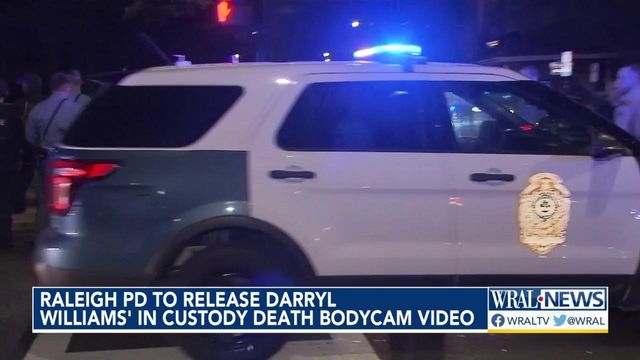Duke law experts: Police need more training, stricter rules to avoid another Tyre Nichols
Triangle experts on police reform did not need to see body camera footage of the arrest of Darryl Williams to offer suggestions, lessons learned from his death.
Posted — UpdatedTriangle experts on police reform did not need to see body camera footage of the arrest of Darryl Williams to offer suggestions, lessons learned from his death.
Garrett and others discussed Williams death and that of Tyre Nichols in Memphis a day before the Williams' arrest video is expected to be released.
"Only a few states have rethought the ground rules when police can use force on people," Garrett said.
He believes Williams' death was unnecessary.
"If you are investigating something very serious, and you have good grounds to think the person is a threat to safety then there may be more justifications to use tools to stop them."
"Training is uneven," Garrett said. "We can't expect them to be first-line medical providers."
Others recommended that police departments tighten up or update use-of-force policies.
Some believe police need stricter rules for themselves. That would come at a state or federal level.
In North Carolina, the House passed a bill this week to toughen penalties for protesters, but lawmakers have not moved to strengthen police guidelines.
"There are very few laws that give police guidance or support or requirements that they need," said Garrett. "Police have been exempt from rules most government agencies have to follow."
Related Topics
• Credits
Copyright 2024 by Capitol Broadcasting Company. All rights reserved. This material may not be published, broadcast, rewritten or redistributed.






